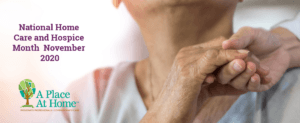
Across the U.S., millions of Americans struggle with depression. Yet, this widespread mental health condition often goes unnoticed and under-detected. Since October is Depression Awareness Month, we are here to share the signs and symptoms of depression and ways to seek help.
Signs & Symptoms
Depression is a complex, multifaceted mental health condition and is experienced uniquely from person to person. However, knowing the signs may help you identify that you or a close friend, family member, or co-worker are experiencing depression. Common symptoms of depression include:
- Changes in appetite
- Not being able to get out of bed
- Insomnia or changes in sleep patterns
- Loss of interest in activities
- Refusal or unmotivated to go to school or work
- Feeling sad, hopeless, or powerless for long periods
- Uncontrollable emotions
- Irritability
- Difficulty concentrating
- Intentional isolation or separation from others
- Suicidal thoughts or actions
Causes of Depression
The cause of one’s depression may be difficult to pinpoint, as depression can arise from a variety of events and experiences. The common origins of depression include:
- Sudden life changes (job change, moving, transition to adulthood, etc.)
- Battling illness
- Trauma or abuse
- Facing substance abuse
- Loss of a loved one
- Social isolation or separation
- Childhood experiences
- Financial turmoil
- Lack of support system
- Lack of acceptance
Seeking Help
Unfortunately, a stigma has developed around depression. Many people think that showing emotion or a dismissive response is weak or a cry for attention — causing those experiencing depression to avoid seeking help.
Depression is not an emotion that you can simply switch on and off. Like many physical illnesses and other mental health conditions, depression does not go away on its own. In many cases, depression worsens over time without the help of a trained clinical professional.
Screenings are often a first step to getting help and are an essential part of your routine health care. Screenings involve a series of questions that can help indicate if one is experiencing depression and how to seek further help. Although screenings are not a professional diagnosis, screenings point out the presence or absence of depressive symptoms and provide a referral for further evaluation if needed.
It is important to know that help and treatment are always available for those suffering from depression. If you or a loved one are experiencing depression, please reach out to your healthcare provider or a clinical professional to receive a referral, assistance, and attention.
If you or a loved one are having suicidal thoughts, call the Suicide & Crisis Lifeline by dialing 9-8-8. This lifeline provides free, confidential, 24/7 access to emotional support by phone or text.






